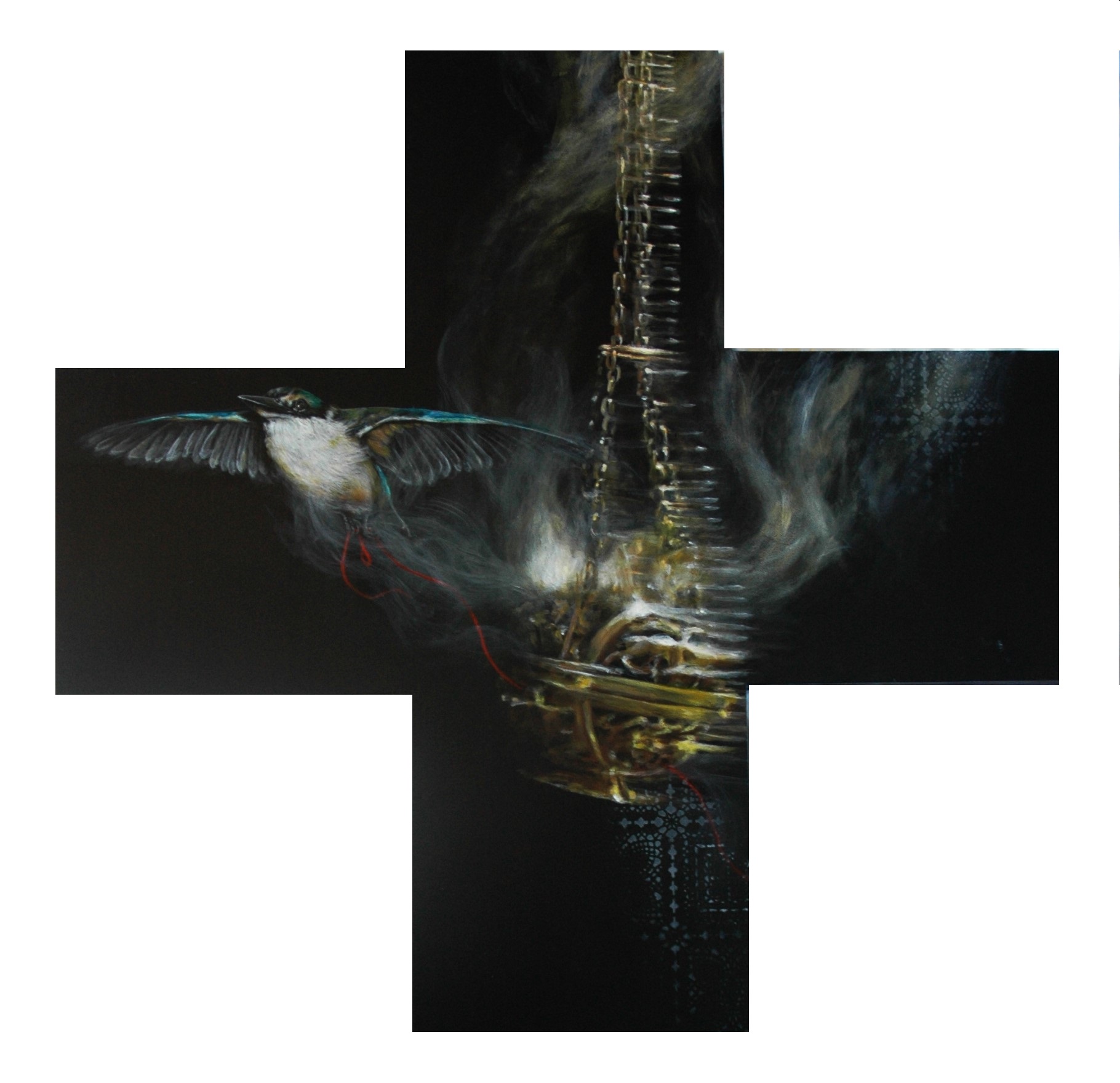A BEAR IN FUKUSHIMA.
Seiko tells me there has been a bear seen
on Shinobuyama, in the middle of our beloved Fukushima-shi,
and I'm heartbroken! How often have I combed a forest, trying to meet
a member of that emblematic species ? shaggy hermit ? scallywag thief
of cottage gardens? Here I was in the middle of revising
scarecrow drawings from my sketchbook of those years
of unsurpassable happiness, when in she comes with her surprising news,
and my immediate response is to complain: ?And I'm not there
to see this bear! Belated is the beast's arrival to adorn the peak!?
(One speaks like this in the poetical world.) Then I surmise
that love itself could so well dwell on absent entities
that people in the actual proximity of its objects could believe
they saw it. The adoring spirit might materialise there ?
take on an irrepressible, natural, if rudimentary form.
That bear was me!
 ABSENCE.
ABSENCE.
However bleak, in your great absence,
it has come to seem to be to me,
there is a warm spot somewhere on the distant
surface of the earth, where you are ? like the one
on fields of rice so ripe that we can see
their yellow tinting the clouds over them -
as out among the oceanic islands, sun-
shine off unwrinkled mirrors of lagoons
lights up the overcast and navigators find them
over the horizon in the rough grey sea;
the way the caterpillars hang in their cocoons
in hoar-frost-glittering gardens, warm,
all winter dreaming up the butterflies-to-be;
or as the secrets in a seed beneath the ground
rehearse the dances of the flower on stem;
or like the small, indomitable fire that glows
in the hollows of a hunter's hands. Around
him a dark wilderness dissolves in rain,
but he holds all his comfort in the rosy
basket of his fingers. So it is he is sustained.
 WHAT COLD?
WHAT COLD?
What cold was this, came suddenly over us
as though we'd passed into a stretch of space
not so congenial to our planet, clouds full sail,
auroras shimmering in the bow-wave, pell-mell
scurrying away into the black star-speckled
universe, to make a show of her white-knuckled
daring? Dark material between us and the sun
occluded all the shades of joy. The colours ran
together in degrees of grey, the lands lay flat
in all directions. Far off round the world, beset
with wandering turbulences, disconnected
places in identical dark countries pock-marked
with the craters meteors made, are drowned in vast
dust-blankets. This is now a vessel that has lost
its whole crew somehow, though it's sailing on -
an island on which we are all alone, marooned,
me here, you there. My darling the earth misses you.
 THE FISH-HOOK.
THE FISH-HOOK.
The Blitz : With each concussion comes a flash
first, which outside the window bares a gape
of cityscape, a canvas roughly-painted with the splash
of conflagration, facades torn with cavities,
between whose lancing pains the city aches
with sirens and the choking-sounds of flame ?
a glimpse in every blaze, of others? agonies;
just as, at every gasp the fish are gulping for
in the unnatural, scalding air, we know their pain
and panic, trapped, hooked through their tongues,
while they, arced on the baking decks, implore
unlikely rescues, struggling in their gargles
to shape voices only the once called for, hung
up by the innards in the intransigent material
of fate ? unable to articulate the arguable
malleability of gases any better than cadavers
speak the dirt that fills their mouths in burial.
The hook is too far in to suffer its removal now.

